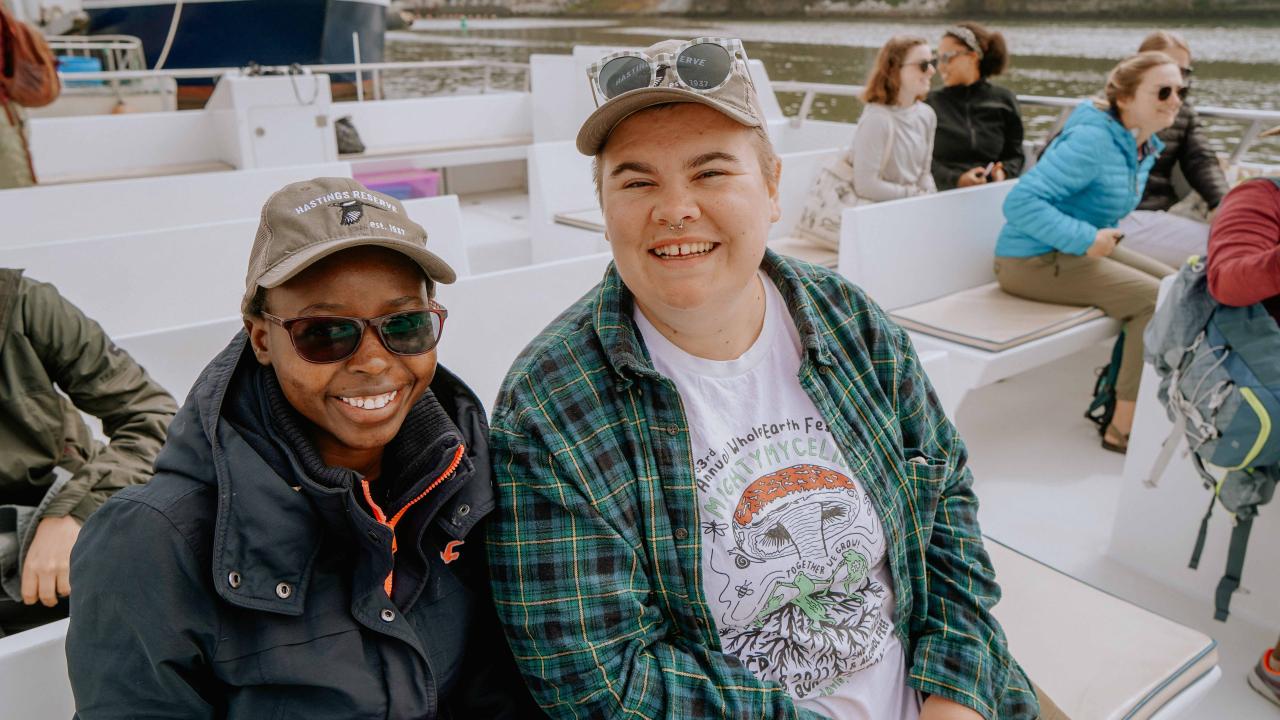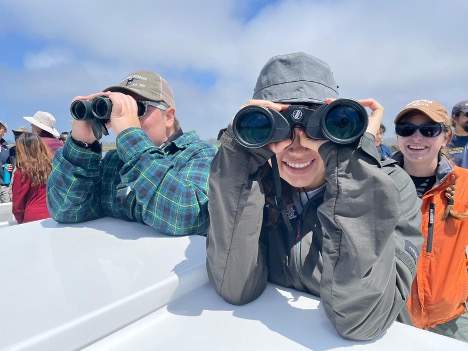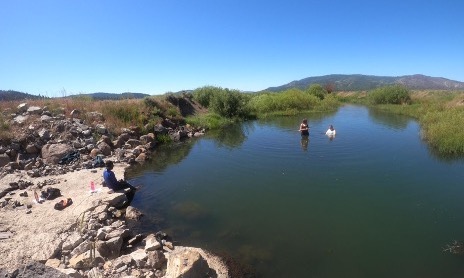
RxOH 2022 Alum: Peter Bowman
Peter Bowman

As a master’s student in the International Agriculture Development program at UC Davis, I’m no stranger to interdisciplinary conversations about pressing global issues. However, these conversations tend to be constrained to policy, agricultural, and environmental expertise and with a definite bias toward social science methods and solutions. Incorporating scientific expertise and perspectives into my work tends to be like a game of academic telephone: trying to translate concepts and potential solutions through a line of simplifications and explanations. A colleague once described our field of expertise as “a mile wide and an inch deep”. Exploring the developing theory of participatory epidemiology for a course led me to work on analysis of rural Sierra Leoneans’ knowledge and perceptions of zoonotic disease and human and animal vaccination which then led me to wanting to learn more about the intersections of human health, animal health, and the ever-changing environment in which we all live. In my professional experience before graduate school, agriculture (including livestock production) and health were separate, siloed fields that only rarely interacted in special cases like cultivation of vitamin enriched crops. Learning about the concept of One Health in graduate school totally shifted my perspective, and I wanted to learn more. Rx One Health was the perfect opportunity to learn more in a hands-on, interactive way.
I learned from Rx One Health in three big ways: hands-on lessons from experts in a wide variety of fields, problem-solving activities that required communication and teamwork with other participants, and the opportunity to network and hear from participants and instructors from diverse backgrounds. Although Rx One Health took place in California this year, I got to work and side by side with participants from all over the world and explore vastly diverse environments and subject areas all across the state. After a few days of classroom learning and work in Davis, we journeyed to Clover Valley Ranch in the high Sierras. Our almost week at Clover Valley was jampacked with One Health field work and learning covering fire ecology, watershed restoration, the zoonotic disease potential of interactions with local wildlife, and basics of wildlife field work. We learned everything through practical activities, with the right amount of necessary background information and plenty of fun. For example, we learned how to properly put on and wear personal protective equipment (PPE) through an activity called the PPE Olympics where, after properly donning full PPE, we jogged around, played operation, tried to free pinecone bats from a net, took samples of nearby organic material (bear manure), and more. While the activities were mostly fun, they taught us the importance of proper protective equipment and the challenges of wearing that equipment in a field environment. The more realistic hands-on activities also gave me the opportunity to experience field work in disciplines I would never get the chance to otherwise. From humane rodent trapping for disease surveillance to hydrological sampling for watershed restoration and monitoring, each day we got the opportunity to go on a mini deep dive into a subject integral to One Health. The days at Clover Valley were long but filled with experiences I couldn’t have gotten anywhere else between time to enjoy the beautiful natural setting.

After almost a week in the high Sierras, we drove southwest to reach the Carmel Valley and Hastings Natural History Reserve, the oldest research station of its kind in California and our home for the next week of learning. Besides taking advantage of our homebase to learn more about wildlife research (Hastings is home to one of the longest running studies on bird socialization!), we ventured out to diverse surrounding areas to continue learning about One Health issues and solutions. As an agriculturalist, I especially enjoyed our day in Salinas Valley, where we learned about organic farming, issues facing our food system, and challenges for farmworkers at Alba Farms. Alba Farms trains community members in Salinas, especially migrant farmworkers, how to manage and operate their own organic farms and provides them with land and access to inputs to begin these farms. I’ve often been a part of conversations about the importance small-scale farmers in making our food system more sustainable and high quality, but it’s rare to see something that is helping beginning farmers in such a concrete way. Another amazing day was the one we spent in Monterey and Santa Cruz, learning about complex and delicate ecosystems like the Elkhorn Slough and hearing from wildlife pathologists and veterinarians about wildlife crisis response. Issues like oil spills, wildfires, or climate change impacting wildlife are such large and complex issues but hearing from experts about the actions they take to prepare for and respond to these crises helped me begin to understand how we can tackle these problems.

Our last two days were spent addressing some of these very issues through a collaborative capstone project. Although we’d had smaller tasks to collaborate on with other participants throughout the course, the capstone activity took that collaboration and problem-solving to a whole other level. The capstone was a simulation of a disaster situation which incorporated aspects of fields and topics we’d studied throughout the entire course, and we could only solve the problem through intense teamwork and use of the expertise of everyone in the group. Although the whole course had been hands-on and incorporated real examples and work when possible, the capstone made the connection between all of it so much more real and evident. This was also where one of Rx One Health’s other strengths really shone through: collaboration and networking between students and professionals from diverse fields with common goals and interests. Throughout the course, I learned so much just from sitting and having a meal or watching the stars and talking with the other participants and our amazing instructors. Each and every person brought such unique experiences and perspectives and shared them so freely and I felt supported to share my experiences and ideas as well. This unique learning environment made it really difficult to say goodbye to everyone at the end of the course, but I also can’t wait to see what all my newfound friends and colleagues do in the future.
Coming face to face with experts from a wide array of scientific fields and being able to learn together, work collaboratively on projects, and just sit down and talk through big issues ended up being the most rewarding and challenging part of Rx One Health. When I first applied, I had very little idea what to expect from Rx One Health other than some kind of two-week course that promised interactive learning and networking. It was all this and more and I’m incredibly grateful that I had the opportunity to participate. I gained knowledge of so many different yet connected fields of study and the work they do, but most importantly, I learned how these disciplines can all come together to help support a better health for humans, animals, and the environment. I can’t wait to use the knowledge and connections I made at Rx One Health to continue my studies and bring a One Health perspective to my future career.
Attending Rx One Health helped me envision a brighter future for health and the planet and meet people from all over the world who shared that vision!
